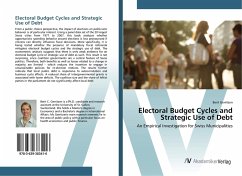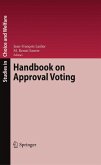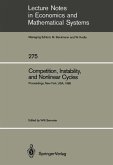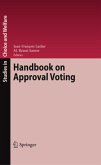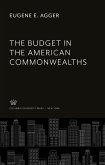From a public choice perspective, the impact of elections on politicians' behavior is of particular interest. Using a panel data set of the 20 largest Swiss cities from 1977 to 2007, this book analyzes whether opportunistic spending behavior around elections is less pronounced if citizens can directly influence fiscal decisions. More specifically, it is being tested whether the presence of mandatory fiscal referenda mitigates electoral budget cycles and the strategic use of debt. The econometric analysis suggests that there is only weak evidence for an electoral budget cycle or strategic use of debt as such. This result is not surprising, since coalition governments are a central feature of Swiss politics. Therefore, both benefits as well as losses related to a change in majority are limited - which reduces the incentive to engage in unsustainable policies for re-election motives. The results further indicate that local public debt is responsive to autocorrelation and business cycle effects. A reduced share of intergovernmental grants is associated with lower deficits. The coalition size and the share of leftist parties in the parliament do not significantly affect local debt.
Hinweis: Dieser Artikel kann nur an eine deutsche Lieferadresse ausgeliefert werden.
Hinweis: Dieser Artikel kann nur an eine deutsche Lieferadresse ausgeliefert werden.

